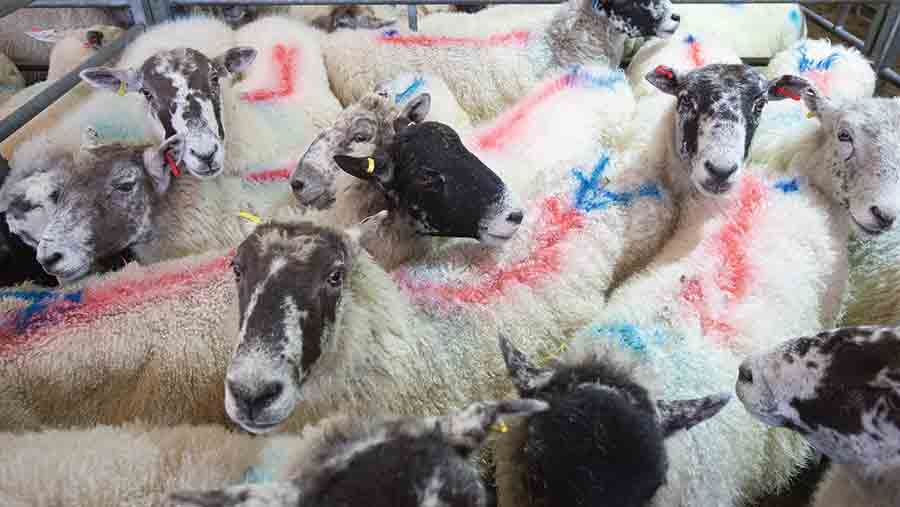Cull ewe trade set firm ahead of Ramadan
 © Tim Scrivener
© Tim Scrivener Cull ewe prices look set to ease slightly in May after a strong April, say auctioneers.
A seasonal lift in averages has been helped by early spring grass that has added condition to cull sheep, with early-lambing units now having flock clearouts.
Average GB cull ewe prices have lifted £15 a head since February to £72, in line with seasonal trends.
But auctioneers say prices could be restrained through May during Ramadan, the Islamic month of fasting, ending with Eid al-Fitr on 4 June.
See also: Video: Guide to selecting lambs for slaughter and minimising losses
Longtown
A strong entry of 3,355 cast ewes and rams met a firm trade at Longtown last week (25 April), with light ewes averaging £61.39 and heavies averaging £92.99.
Sheep auctioneer Nick Woodmass, C and D Auction Marts, is seeing a much larger proportion of lowland sheep coming through the ring and noting a tightening in supply of leaner hill-bred ewes.
He said the lighter-weight hill ewes, typically having carcasses of 20-25kg, are the most sought after, although Texel-cross ewes at 30-40kg are still a good trade.
“Breeds like Cheviots, Blackfaces and Swaledales look the dearest and there are a lot of firms looking for the smaller carcasses,” he added.
Light sheep averages have lifted by £10 a head over the past two months, with heavy sheep averages up £5-£10 a head.
He added that numbers are relatively tight at Longtown, and peaked at more than 9,000 head late last summer.
St Asaph and Oswestry
Sheep trade has strengthened over the past month at Oswestry and St Asaph’s cull ewe rings, according to auctioneer Wyn Morton.
Early-lambing flocks across the Vale of Clwyd are now culling out after December/January lambing to produce some of the biggest entries of the year.
St Asaph’s cull ewe ring saw 1,541 head average £67 on Thursday (25 April).
The past six weeks have seen 800-900 head a week sold through Oswestry. Last week (24 April), an entry of 871 ewes and rams hit an average of £64 (+£6 on the week).
“Strongest demand is on good, lean ewes – there is a shortage of them,” said Mr Morton. “Buyers aren’t keen on anything too fat.”
He added that supply often rises to meet demand in April, but Islamic fasting through Ramadan could put a little downward pressure on cull sheep values unless numbers tightened.
